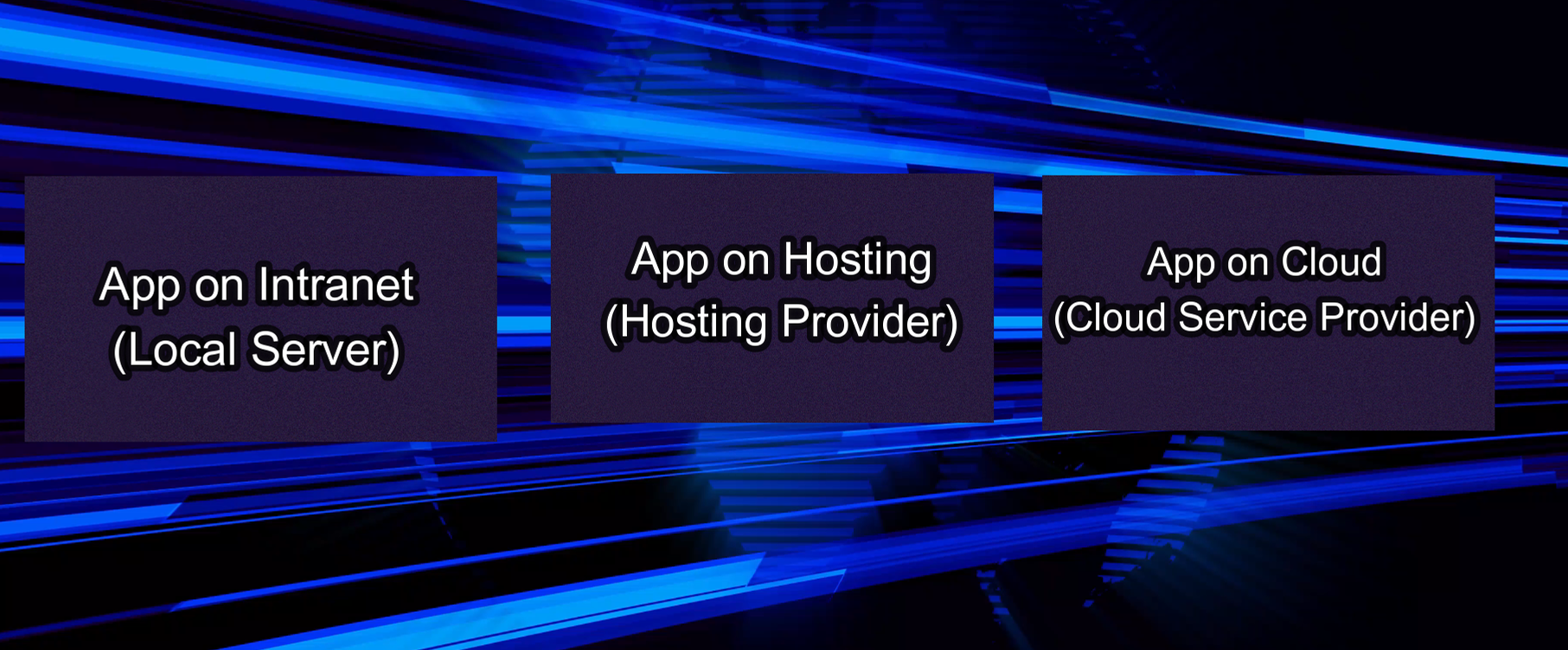
Understanding Cloud Computing: A Beginner's Overview
In the early days of computing, software applications were primarily deployed on individual machines or local servers. This meant that only a limited number of users could access the application at a given time and it required significant hardware and infrastructure investments. However, with the advancement of technology, this traditional method of application deployment has evolved into a more efficient and flexible solution known as cloud computing.

Cloud computing is the delivery of computing services over the internet. It allows users to access a pool of shared computing resources, including servers, storage, databases, software, and analytics tools, on a pay-per-use or subscription basis. In simple terms, it means that instead of buying, owning, and maintaining physical data centers and servers, businesses can access these resources virtually from a cloud service provider.
The concept of cloud computing was born in the late 1950s, when mainframe computers became widely accessible through thin clients or terminal computers. These clients were connected to the mainframe, allowing multiple users to access a central computer's processing power. This was the beginning of time-sharing, where users could utilize a single computer through different terminals concurrently.
With the invention of the internet in the 1990s, the foundation for cloud computing was laid. In the early 2000s, companies such as Salesforce, Amazon, and Google began offering on-demand software services, marking the beginning of the cloud computing era. These companies offered a web-based platform for software delivery, which eliminated the need to install and maintain applications on individual computers.
Cloud computing offers several benefits, making it an attractive option for businesses looking to deploy their applications. One of the major benefits is scalability. Unlike traditional methods, where hardware and infrastructure have to be physically upgraded to accommodate growth, cloud computing allows businesses to scale up or down their computing resources on demand. This means they can adjust their resources to meet their changing needs, which is particularly useful for businesses with fluctuating demands.
Another significant advantage of cloud computing is cost savings. With traditional methods, businesses would have to invest heavily in hardware, software, and infrastructure to run their applications. However, with cloud computing, the burden of maintenance and upgrades is shifted to the service provider, reducing the costs for businesses significantly. Essentially, cloud computing operates on a utility-based pricing model, where users only pay for the resources and services they use.
Moreover, cloud computing offers increased flexibility and accessibility. It provides users with the flexibility to access their applications and data from any device and any location with an internet connection. This not only makes it easier for businesses to collaborate but also allows them to streamline their operations and increase productivity.
Apart from these benefits, cloud computing also offers improved reliability and security. Cloud service providers have multiple data centers located in different geographic regions, ensuring that services remain available even in the event of a natural disaster or hardware failure. With traditional methods, businesses would have to invest in backup systems and disaster recovery plans, which can be costly and time-consuming.
Major cloud service providers are:
1. Amazon Web Services (AWS): AWS is a behemoth in the cloud computing space, offering a wide range of services such as computing, storage, database, and networking. It is known for its scalability, cost-effectiveness, and a vast global infrastructure that supports millions of customers.
2. Microsoft Azure: Azure is a cloud computing platform by Microsoft that offers a comprehensive set of enterprise-grade services, including virtual machines, storage, and AI-based solutions. It also has seamless integration with existing Microsoft tools and software, making it a preferred choice for businesses already using Microsoft products.
3. Google Cloud Platform (GCP): GCP is Google's cloud computing platform, providing a range of services such as cloud storage, database management, and big data analytics. It is known for its strong support for open-source technologies and its AI and machine learning capabilities.
4. IBM Cloud: IBM Cloud is a leading enterprise-level cloud service provider, offering a wide range of services such as cloud storage, computing, and data management. It is popular for its specialized services for industries such as healthcare, finance, and retail.
5. Oracle Cloud: Oracle Cloud is a comprehensive enterprise-level cloud platform that offers services such as infrastructure as a service (IaaS), platform as a service (PaaS), and software as a service (SaaS). It is known for its strong security features, hybrid cloud capabilities, and support for Oracle's popular databases.
6. Alibaba Cloud: Alibaba Cloud is the cloud computing arm of Alibaba Group, providing services such as cloud hosting, storage, and big data analytics. It has a strong presence in the Asian market and offers a cost-effective alternative for businesses looking to expand in that region.
7. Salesforce Cloud: Salesforce Cloud is a cloud-based customer relationship management (CRM) platform that offers a range of services, including sales management, marketing automation, and customer service. It is known for its user-friendly interface and customizable solutions for businesses of all sizes.
In conclusion, cloud computing has revolutionized the way applications are deployed and managed. It has introduced flexibility, scalability, cost savings, and improved reliability and security that were not possible with traditional methods. As technology continues to advance, more businesses are expected to adopt cloud computing, making it the future of application deployment.
MyExamCloud Study Plans
Java Certifications Practice Tests - MyExamCloud Study Plans
Python Certifications Practice Tests - MyExamCloud Study Plans
AWS Certification Practice Tests - MyExamCloud Study Plans
Google Cloud Certification Practice Tests - MyExamCloud Study Plans
Aptitude Practice Tests - MyExamCloud Study Plan
| Author | JEE Ganesh | |
| Published | 1 year ago | |
| Category: | Programming | |
| HashTags | #Java #Python #AWS #Programming #GCP #CloudComputing #Software |


